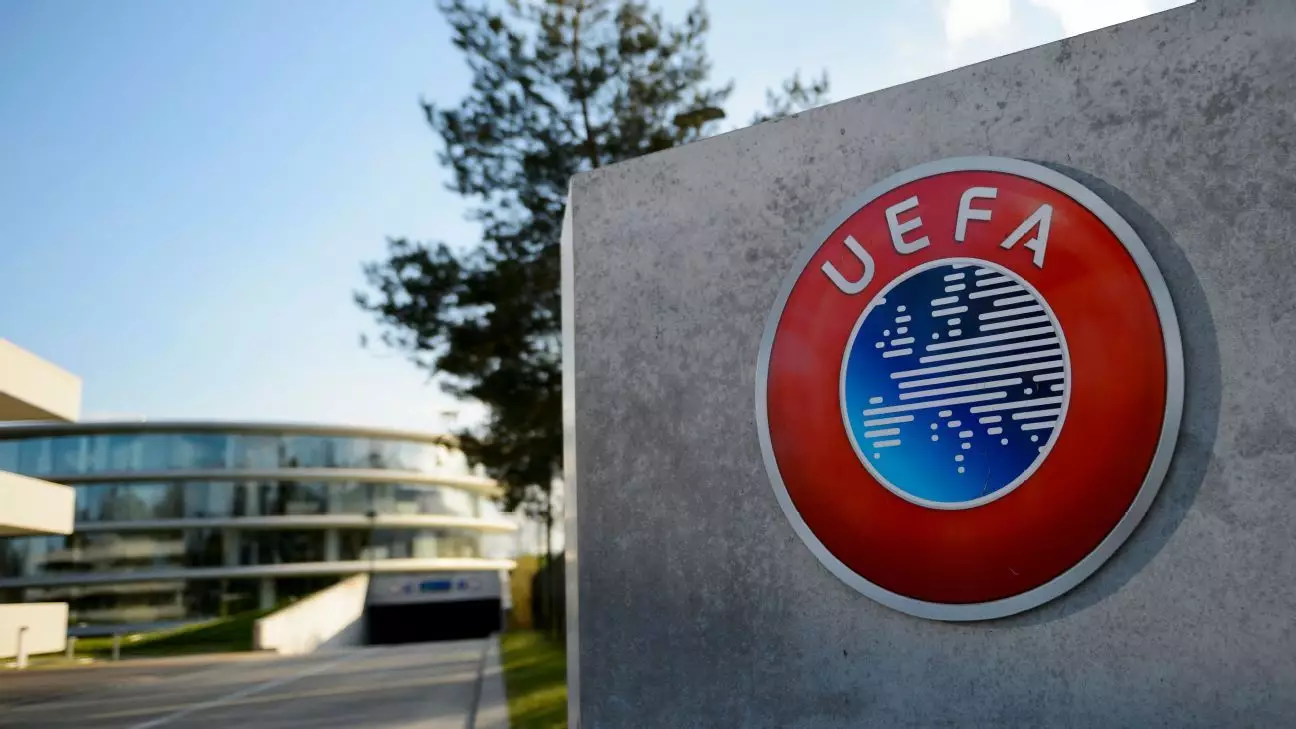In recent years, European football has seen an increasing emphasis on financial sustainability, with UEFA taking proactive measures to enforce fiscal discipline among its elite clubs. The hefty fines levied on Chelsea and Barcelona underscore a broader trend: UEFA’s resolute stance against reckless spending that threatens the integrity of the sport. The record-breaking €31 million fine imposed on Chelsea highlights the escalating financial scrutiny and indicates a shift toward stricter enforcement of financial fair play (FFP) rules.
This punitive action isn’t merely about penalizing clubs that overstep; it reveals a strategic intent to cultivate a sustainable financial ecosystem within football. UEFA’s complex evaluation process for club accounts aims to prevent a repeat of a financial arms race among top-tier teams, where lavish transfers and exorbitant wages threaten to destabilize the competitive balance. The fines serve as both punishment and deterrent, emphasizing that clubs must prioritize long-term stability over short-term glamour.
However, what’s truly compelling is the message embedded within these sanctions: Europe’s football authorities are willing to impose severe financial consequences on even the most prominent clubs to safeguard the sport’s integrity. The €20 million fine for Chelsea, matching previous penalties on Manchester City and Paris Saint-Germain, signals a consistent enforcement pattern, regardless of a club’s stature or market power. Such measures challenge clubs to reevaluate their spending strategies or face the repercussions of jeopardizing their participation in lucrative competitions like the Champions League.
Ownership and Spending: A Culture of Excess in Modern Football
The recent fines reveal a troubling reality: a significant part of European football’s financial breaches stems from ownership-driven overspending. Chelsea’s lavish expenditures since Todd Boehly’s takeover in 2022 exemplify this trend. The American businessman’s club has been involved in substantial transfer investments, putting pressure on UEFA to act against what it perceives as unsustainable financial practices.
Additionally, Chelsea’s controversial sale of hotel assets and the subsequent investigation into the €76.5 million transaction expose the opacity that often surrounds club finances. These intricacies demonstrate how clubs sometimes seek loopholes or engage in complex financial maneuvers to stay within regulatory limits—maneuvers that inevitably attract UEFA’s scrutiny. The fact that Chelsea paid nearly €11 million for exceeding squad cost limits underlines the measure’s importance as a financial safeguard that clubs ignore at their peril.
Barcelona’s case further exemplifies this problematic culture of financial excess. The Catalan giants’ inability to keep expenditures within sustainable margins, coupled with their hefty €15 million fine for excessive losses, shows that even historically revered clubs are not immune to financial mismanagement. Both Chelsea and Barcelona stand at crossroads: continue spending beyond their means at the risk of heavy penalties or embrace a more measured, sustainable model.
This reckless spending paradigm risks undermining the very foundations of competitive integrity. When clubs prioritize short-term success—through expensive transfers and high wages—over sound financial practices, the entire league ecosystem begins to destabilize. Fans and stakeholders alike deserve transparency and fiscal responsibility, yet the current landscape suggests a persistent culture of excess that UEFA must continue to police vigorously.
Implications for the Future of European Football
UEFA’s decisive actions send a clear message: financial misbehavior will be met with serious repercussions. The financial penalties, coupled with future conditional fines for missing targets, are designed not just to punish but to catalyze genuine reform. Clubs face the hard reality that their financial conduct directly influences their ability to compete in Europe’s premier tournaments—an incentive to curb reckless spending and adopt sustainable models.
Furthermore, these sanctions could reshape the competitive landscape across Europe. Clubs that previously relied on lucrative transfers and generous ownership funding might be forced to reconsider their strategies, paving the way for more balanced approaches that prioritize stability over vanity projects. This realignment could ultimately foster a healthier, more competitive environment where clubs thrive based on sporting merit rather than financial might alone.
Yet, the key challenge remains: enforcement. UEFA’s track record of imposing fines on clubs from various leagues demonstrates a willingness to act, but the perpetuity of this approach depends on consistent application and the willingness of stakeholders to accept oversight. As clubs like Lyon, Aston Villa, and others face future fines or sanctions based on financial targets, the focus shifts from reactive penalties to proactive fiscal management.
In this context, club owners and management must recognize that sustainable success in modern football is intertwined with prudent financial planning. The days of unchecked spending are waning; the future belongs to clubs that prioritize transparency, fiscal discipline, and strategic investment. UEFA’s evolving regulatory framework, exemplified by these recent fines, aims to instill these values across the continent.
In essence, UEFA’s recent crackdown on club finances signals a crucial turning point—one that could define the future trajectory of European football. Clubs must adapt or risk severe penalties that threaten their European campaigns, and in doing so, they might just be compelled to focus more on sporting excellence and economic prudence. The era of reckless spending may be nearing its end, but whether this will translate into a healthier and more competitive football landscape remains a question only time will answer.


Leave a Reply